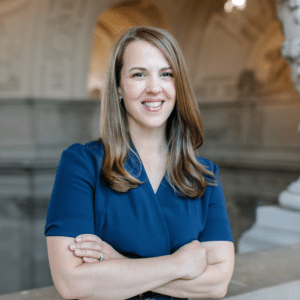By ProFellow Founder, Dr. Vicki Johnson
One of the biggest challenges to applying to a competitive fellowship is completing your personal statement or essay. A personal statement is a written description in essay form of your background, motivations, and interests in applying for the opportunity. You need to express succinctly and eloquently why you are a great candidate and leave a memorable and positive impression on the reader. No matter how great a writer you are, that’s a tall order. Just the anticipation of writing a personal statement can cause writing paralysis, otherwise known as writer’s block.
Writer’s block happens to the best of us, including experienced and published writers. Since I have your attention, I’d like to share with you my exercises for conquering writer’s block and starting a personal statement.
First, let’s review the elements of a personal statement. An effective statement has 5 main elements:
- A powerful opening statement or paragraph
- A coherent story that explains why you are applying to the fellowship
- Specific, memorable examples that are emotional and personal
- An expression of your future plans post-fellowship, and
- A humble and appreciative closing.
Now, on to the exercises. Turn off your phone, TV and other distractions and let’s get started!
Exercise 1: Identify what the fellowship is looking for
Pull up the materials about the fellowship program, whether online or in print, and identify the nouns related to their ideal candidates. These may be leader, advocate, expert, networker, scholar, cultural ambassador, teacher, entrepreneur, etc. Put these in list #1.
Next, identify the adjectives that describe their ideal fellow, words such as motivated, knowledgeable, connected, entrepreneurial, passionate, and committed. Put these in list #2.
Finally, reflect on your relationship with these words. Fill in the sentences below using one word from your lists at a time. Don’t worry about being perfect – just write! This is just a creative exercise to get your thoughts flowing.
I am a (#1) because I ____________.
I am (#2) because I _____________.
Here are examples of what I wrote.
I am a leader because I realized I had the skills to help my hockey team achieve their goals.
I am motivated because I can see the positive impact of my volunteer work at the women’s shelter and I want to help as many people as possible.
Once you do this simple written exercise with all the words on your lists, you’ll begin to have a clearer picture who you are and what drives you.
Exercise 2: Clarify your motivations for applying to the fellowship
Prepare a brief, one-line summary of what you would do during the fellowship if you were to win, and be as specific as possible. This might be something like: work for one year as an advocate for a non-profit that is addressing poverty in Oakland. Or: spend one year in Germany researching how German government agencies process and settle Lebanese refugees.
Next fill in the sentence – not once – but 10 times, with a different ending each time:
I want to (summary) because I _________________.
This exercise can be more challenging than you might think. Why exactly do you want to do this fellowship? What will you gain from it, personally and professionally? Consider the skills and experience you would gain, people you would meet, and goals you would achieve. The exercise requires you to do this 10 times so that you are forced to come up with 10 specific, unique reasons for pursuing the fellowship. Reason 10 will be a lot harder to generate than reason 1, but reason 10 might reveal something you hadn’t considered about your fellowship motivations.
(By the way, this exercise can also reveal if you are applying for the fellowship for the wrong reasons. If you really can’t come up with a good reason #10, then reflect on that before moving forward with your application).
Exercise 3: Uncover your stories
Brainstorm experiences from various times in your life that have influenced your current world views, including your political opinions, your passions, and your priorities. Create at least 3 bullet points of experiences (1-2 sentences) under the 3 lists below. This is a brainstorming exercise so don’t mull over these too hard – write down whatever important or surprising memories come to mind.
1: Write down experiences/observations from childhood (8th grade and younger)
2: Write down experiences/observations from high school
3: Write down experiences/observations from college and later
Here are examples of what I wrote.
1: Write down experiences/observations from childhood (8th grade and younger)
- My father was a Lutheran minister and taught us through example the value of helping others and community service
- Using the BMG ‘Buy 1 CD get 12 CDs free deal’ that came in the mail, I started buying jazz CDs in 5th grade, which opened my mind to new creative expressions
2: Write down experiences/observations from high school
- I played for four years on a losing field hockey team, so I experienced failure over and over again, but I remained committed to my team
- I ran for student council president and had to really consider what value I could bring and why anyone would vote for me
3: Write down experiences/observations from college and later
- I had to work during college and summers, so I missed out on things like spring break and unpaid internships in DC, but I was proud that I was able to support myself
- I lived abroad in Germany in 2003 where I first experienced anti-Americanism – I felt like I was always defending myself for being American
Exercise 4: Write some vignettes
Pick a few of your experiences from Exercise 3 that are most influential to the reasons for applying that you identified in Exercise 2. (If you feel you missed an important story, add it to your bullets!)
For each experience that you selected, write a one paragraph vignette (i.e., a brief, evocative description, account, or episode). Pretend you are telling this story to a friend over the phone or starting a chapter in a novel. Describe what happened and how it made you feel in a few sentences.
Read the vignettes to a friend or family member and afterward, ask them which story is most interesting and memorable.
Exercise 5: Prepare an outline
Based on the personal statement questions in the fellowship application, prepare an outline of your essay. It should look something like this:
- Opening paragraph – a defining story to catch the reader’s attention
- How your experiences and world view have inspired you to apply for the fellowship
- Your future career and/or education goals (be specific)
- Why you are a strong candidate
- How the fellowship is uniquely positioned to help you achieve your goals
Exercise 6: Start writing your personal statement
Rather than starting with a blank state, you now have a lot of ideas and excerpts to effectively begin your personal statement. Based on the example outline above, here’s an approach to your statement.
Your opening section should incorporate an interesting vignette generated in Exercise 4. Your goal is to capture the reader’s attention with a short story. Here are some ideas and examples for creating powerful opening sentences.
Your second section should build on your opening story. You can go more in-depth about how that experience influenced your current career path and world view.
Your third section should describe your future career and/or education goals, and why you are motivated to apply for the fellowship. Be sure to touch on the mission of the fellowship and describe how your goals align with the fellowship organization’s goals. In this section, you should incorporate some of the ten reasons you are applying that you generated in Exercise 2.
Your fourth section should use some of the examples generated in Exercise 1 to describe why you are a strong candidate (using the nouns and adjectives you identified).
Your final section can describe how the fellowship is uniquely positioned to help you achieve those goals. Discuss what you can gain from the fellowship experience that you could not gain elsewhere. End with a humble note of appreciation for the opportunity. I like to close with a “Thank you for your consideration” if word count allows.
Using this process, you can develop multiple versions of your personal statement using different vignettes and ideas that you generated. Have a mentor review your drafts and provide some feedback. Keep revising! Once you go through the exercises outlined in this article, you’re halfway to completing an effective personal statement.
For more fellowship application tips, see:
5 Powerful Personal Statement Openings of Fellowship Winners
How to Add Urgency to Your Fellowship Application
How to Incorporate Travel in Your Fellowship Project Proposal
5 Secrets to Producing Winning Fellowship Project Ideas

Dr. Vicki Johnson is Founder and CEO of ProFellow, the world’s leading online resource for professional and academic fellowships. She is a four-time fellow, top Ph.D. scholar, Fulbright recipient and an award-winning social entrepreneur. She is the Creator and Director of Fully Funded, an award-winning online course and mentorship program for graduate school applicants seeking to find and win full funding.
© Victoria Johnson / ProFellow, LLC 2016, all rights reserved.
